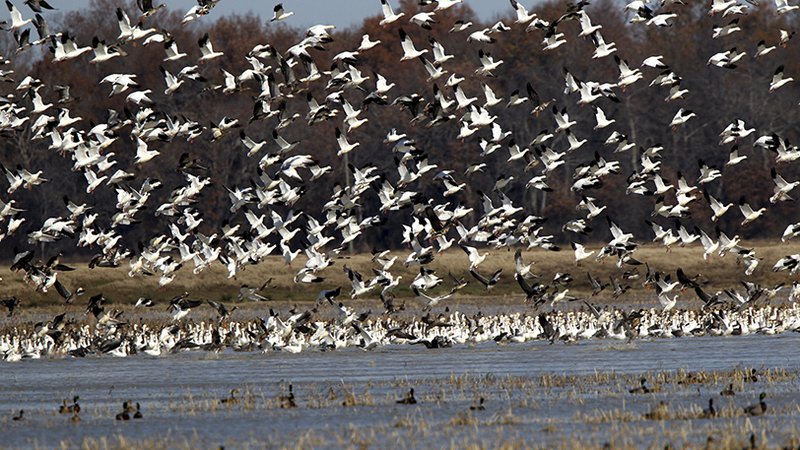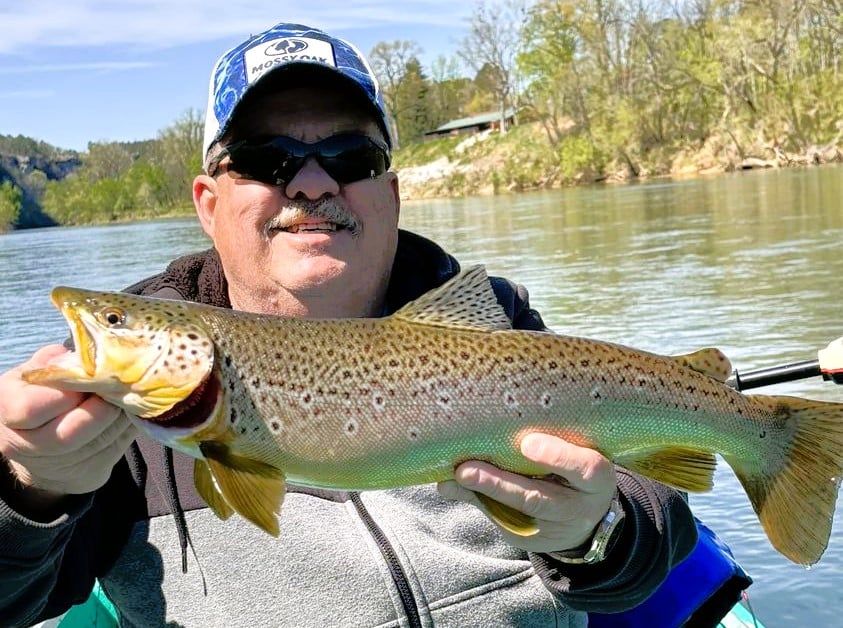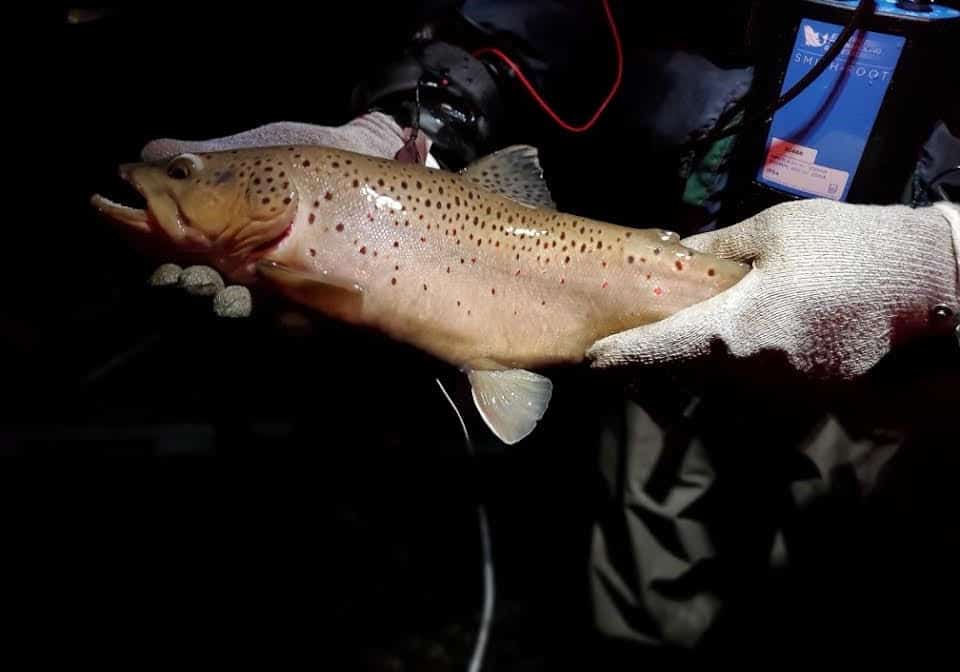Waterfowl deaths linked to avian cholera
ON 11-29-2017

Nov. 29, 2017
Randy Zellers
Assistant Chief of Communications
During the last four weeks, waterfowl have been reported dead at seven localized areas in northeast and east central Arkansas. Four of these incidents included white-fronted geese (specklebellies) and a small number of dabbling ducks. Three other incidents have included mostly snow geese. Tests are still pending for some birds found dead, but test results from the first case indicated those birds died from avian cholera.
Dr. Jennifer Ballard, state wildlife veterinarian for the Arkansas Game and Fish Commission, says the birds all showed signs of the disease, but confirmatory testing was needed to be certain of the cause.”
“Avian cholera is very common in waterfowl,” Ballard said. “Snow and Ross’s geese have been reported to act as silent carriers of the bacteria that causes it.”
According to Ballard, carriers can shed the bacteria into the environment, where it can wait in the water for weeks. In many cases, birds can die in a matter of hours after being exposed to the bacteria.
“Avian cholera isn’t new to Arkansas,” Ballard said. “The most recent large-scale event on record was in 2008, when close to 1,000 snow geese were found dead.”
The disease is not expected to have any population-level effects, but it can cause high rates of death in small areas, particularly when waterfowl densities are high. This year’s widespread drought conditions may be a contributing factor in the most recent occurrences, concentrating geese in small areas with surface water.
The bacteria causing avian cholera can infect a wide range of species, including birds and mammals. It can infect humans but is not the same bacteria associated with human cholera that plagues many developing countries. Domestic livestock, such as chickens, also are susceptible to avian cholera.
The Arkansas Livestock and Poultry Commission and AGFC are coordinating on the issue. Arkansas State Veterinarian Dr. Brandon Doss considers the occurrence of avian cholera in wild ducks and geese to pose a minimal risk to the state’s poultry industry. However, poultry producers are encouraged to maintain good biosecurity measures at their facilities at all times to prevent disease transmissions to and from wild birds.
The AGFC recommends any hunters who find animals that are dead, appear sick or behave abnormally to contact the AGFC. Never consume any animal you know to be sick. Also be sure to wear disposable gloves and wash your hands thoroughly if you handle sick ducks or geese.
Recent News

Arkansas Wildlife Weekly Fishing Report
Apr. 18, 2024
Subscribe to Our Weekly Newsletter E-mails
Don’t miss another issue. Sign up now to receive the AGFC Wildlife Weekly Newsletter in your mailbox every Wednesday afternoon (Waterfowl Reports are published weekly during waterfowl season and periodically outside the season). Fishing Reports arrive on Thursdays. Fill in the following fields and hit submit. Thanks, and welcome!

